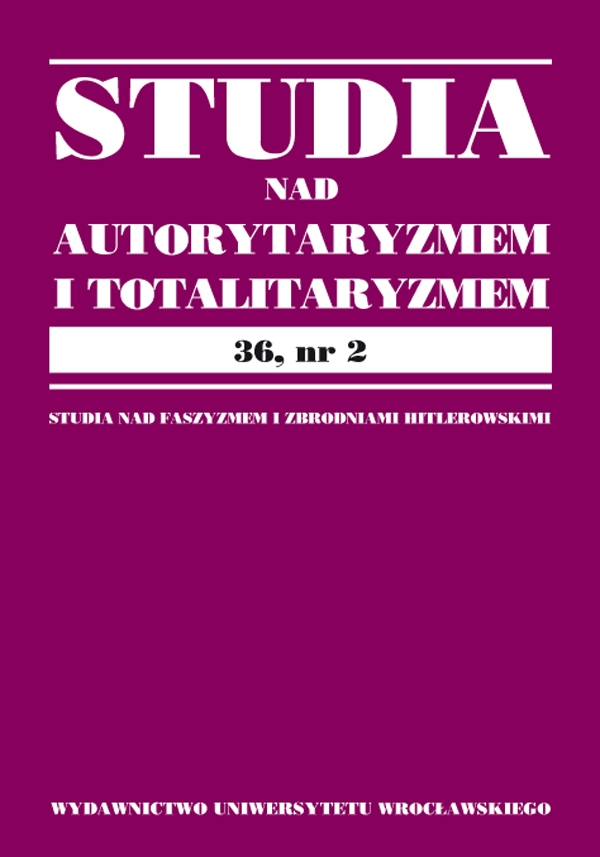

Articles

COMMUNISM IN ANTONI KWIATKOWSKI’S VIEWS 1920–1939
Research into the communist doctrine has had its tradition in Poland. Polish Soviet studies schools in the Second Republic were the first academic centres to study the state, law, government and culture under Bolshevik rule. Some of these schools tackled the problem of communism in its socio-economic aspect e.g. Socio-Economic Institute in Warsaw headed by Ludwik Kulczycki, international aspect Academic Research Institute of Eastern Europe in Vilnius founded by Prof. Stefan Ehrenkreutz and Eastern Institute in Warsaw organised by Włodzimierz Warkan or national aspect Nationalities Research Institute in Warsaw headed by Stanisław Thugutt. There were also academic centres studying communism in its ideological and political aspects. They include the Communism Research Institute in Warsaw headed by Rev. Antoni Kwiatkowski pseudonym: Antoni Starodworski. The author of the article focuses on the political thought of one of the first commentators and analysts of Russian communism in the inter-war period, Rev. Antoni Kwiatkowski 1890–1970. In particular, he presents Rev. Kwiatkowski’s views on problems relating to socio-economic relations, religious persecution and propaganda of Bolshevik Russia. This last aspect was the most important in the research conducted by Rev. Kwiatkowski, who assumed that the Bolsheviks’ “book and press front” took the form of fully-fledged propaganda regarded by him as a“psychospheric” phenomenon, successfully influencing the masses. He claimed that the printed word in the Marxist ideology was aform of “psychospheric electron,” which was part of communism’s complete “psychosphere.” According to the present author, the research carried out by the pioneer of Polish Soviet studies had aconsiderable impact on the understanding of the essence of communism as well as political ideas promoted by its followers.